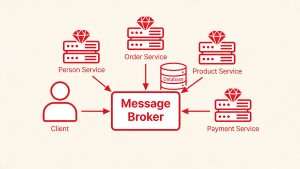Quality assurance (QA) stands as a foundational pillar in the online gambling industry, underpinning the seamless operation, fairness, and credibility of digital gaming platforms. As online gambling continues to evolve at a rapid pace, the importance of robust QA practices has only intensified, ensuring platforms remain stable, compliant, and trustworthy in a highly competitive landscape.
Why Quality Assurance is Essential in Online Gambling
Ensuring Fair and Transparent Gameplay
QA processes are meticulously designed to verify the accuracy of payout algorithms and live odds across online slots and other gambling games. A central focus is placed on validating Random Number Generator (RNG) algorithms, which are fundamental to game fairness and accurate Return to Player (RTP) percentages. By rigorously testing these systems, QA teams guarantee that every player receives a fair and transparent gaming experience.
Maintaining Regulatory Compliance
Online gambling operators are subject to strict regulatory frameworks intended to prevent fraud and protect user interests. QA engineers play a pivotal role in conducting comprehensive compliance checks, ensuring that platforms adhere to legal standards and safeguard sensitive player data. This diligence is crucial for upholding the operator’s reputation and avoiding costly legal penalties.
Preventing Financial and Reputational Risks
Through a combination of manual and automated testing, QA teams are able to identify and address potential errors before they escalate. This proactive approach helps prevent financial losses and shields the operator from reputational harm. Additionally, QA validation of bonus systems and promotional offers ensures that all financial transactions and rewards are handled accurately and securely.
Key QA Testing Methods in Online Gambling Software
Manual vs. Automated Testing
Both manual and automated testing are integral to a comprehensive QA strategy. Manual testing is invaluable for detecting visual inconsistencies and user interface issues, enhancing the overall player experience. On the other hand, automated tools such as Selenium, Postman, LoadRunner, and JMeter are leveraged to efficiently manage repetitive, high-volume tasks, ensuring consistent performance and reliability.
Device and Compatibility Testing
Given the diversity of devices and operating systems used by players, QA engineers rigorously test the compatibility and functionality of online slots and games across multiple platforms. This ensures a uniform and enjoyable experience for all users, regardless of their chosen device.
Benefits of Robust Quality Assurance in Online Gambling
Enhancing Player Trust and Loyalty
A strong QA framework instills confidence in players, assuring them of the fairness and dependability of the games they play. This trust is a key driver of player engagement and long-term loyalty to the platform.
Accelerating Feature Releases
By identifying and resolving issues early in the development process, QA enables faster and smoother deployment of new features and updates. This agility helps operators stay ahead in a dynamic and competitive market.
Promoting Operational Stability
Thorough QA testing is instrumental in minimizing downtime and technical disruptions. This commitment to operational excellence ensures that players can enjoy uninterrupted, high-quality gameplay at all times.
Conclusion
Quality assurance is not merely a technical necessity but a strategic asset in the online gambling sector. By ensuring fair play, regulatory compliance, and operational stability, QA teams help operators build platforms that players can trust and enjoy. As the industry continues to innovate, the role of QA will remain central to delivering safe, reliable, and engaging gaming experiences.
Read more such articles from our Newsletter here.



